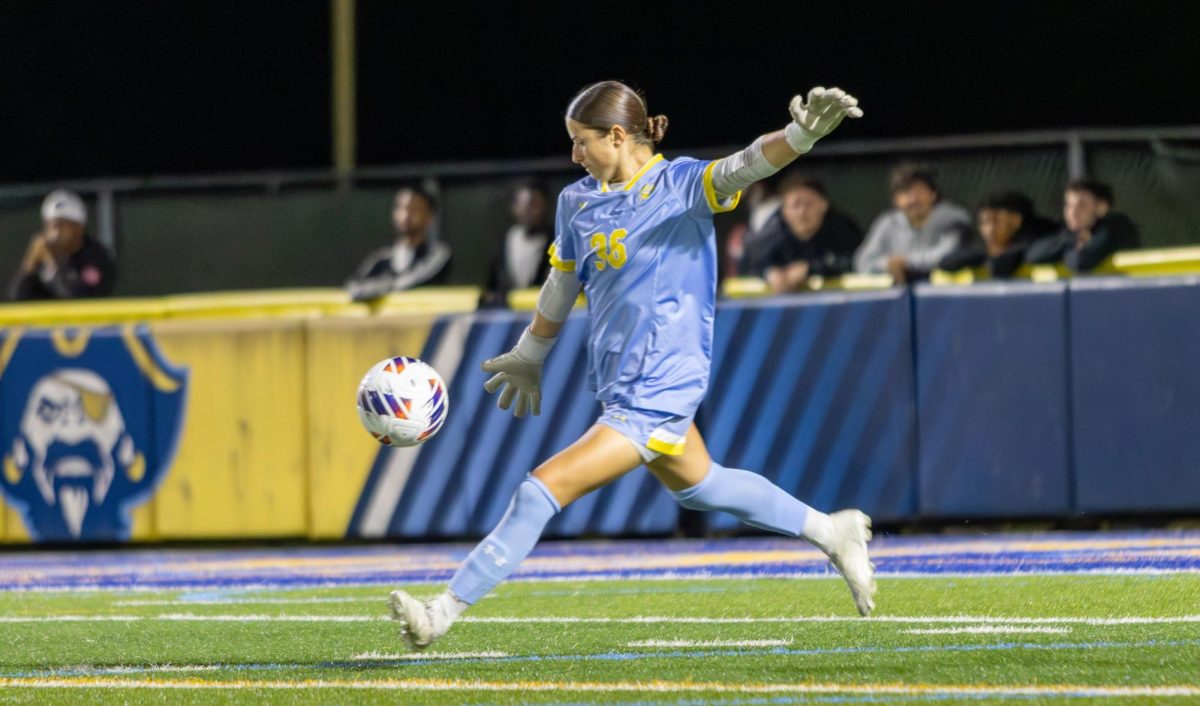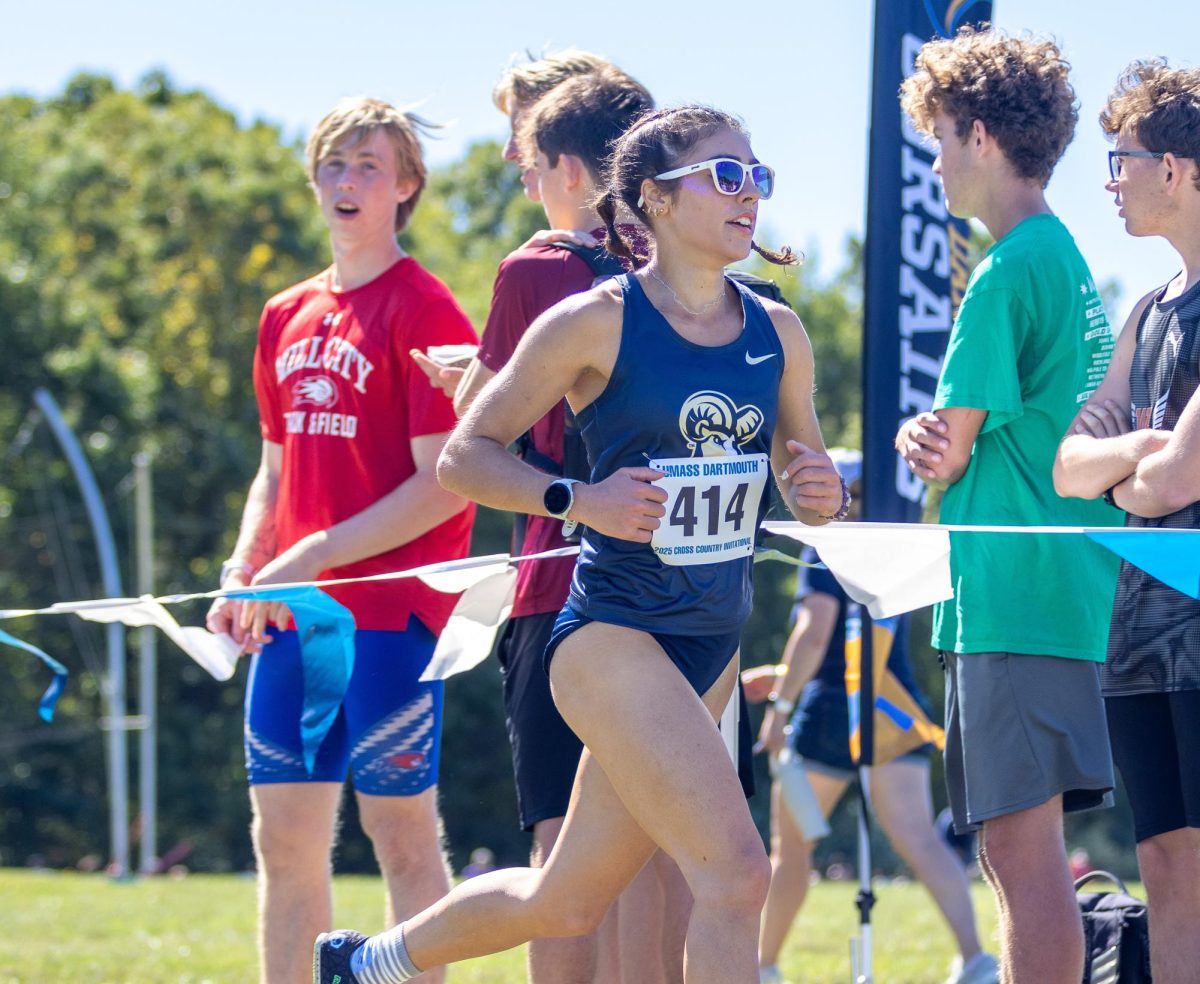Article by: Alex Mellion
Last night, the Sawyer Business School held a panel at the Law School entitled “Emerging Trends in the Business of Sports.” The panel was part of the Executive Speaker Series in the Business of Sports.
On the panel sat five sports personalities with various Boston-area connections: Rich Gotham, Boston Celtics Team President; Bob Sweeney, current Director of Development for the Boston Bruins Foundation; Kristine Lilly, World Cup Soccer Champion and current player for the Boston Breakers of the Women’s Professional Soccer League (WPS); Murray Kohl, Vice President of Sales for the Kraft Sports Group; and Ted Johnson, three-time Super Bowl champion with the New England Patriots. Moderating the discussion were Catherine McCabe, Associate Professor in the Department of Marketing, and Karin Piscitelli, a sports marketing consultant who was involved in the launch of the WPS.
Suffolk Vice President John Nucci opened the panel praising the University and the city as a whole. He called Boston “one of the greatest sports cities in the world,” and said that the university’s new partnership with the Boston Celtics enables students to “hit the ground running” in finding a job after graduation.
All of the panelists agreed that the recession has had a big impact on their respective sports. Gotham said that the business of sports has been “irrevocably changed” and that corporate sponsorship obviously isn’t cheap. Gotham even jokingly said that some people were willing to use their money for tickets to a sporting event, rather than pay for their mortgage. Lilly said that it wasn’t the best time to start a new league right in the middle of the recession, but added that interest in the WPS is steadily growing and season ticket holders have doubled since last season.
Sweeney couldn’t quite put into words how to measure success in this economy, but had an interesting story to tell: Two weeks after he was hired, he ran into an old college friend from his playing days at Boston College. Sweeney told him about his new job with the Bruins and his friend promptly donated $100,000 to the team. He remarked that there obviously won’t be many occurrences of that happening in this economy, but that it was a good way to start off his tenure with the team.
When asked how the Patriots market their franchise, Johnson remembered his early days with the team.
“When I first walked into Gillette [Stadium], it looked like downtown Tokyo with all of the advertisements and signs around the stadium,” Johnson said. He also said that the Patriots handle their players differently from other teams around the league, requiring their players to do at least ten unpaid appearances per year.
Posed with a question about fan access, Gotham praised the use of social networking sites like Twitter and Facebook. He said that those services are a great way to get instant feedback from fans all over the world.
“Whether they want to be or not, athletes are a brand,” Gotham said. Sweeney added that with cell phone cameras and other devices, athletes frequently find themselves under public scrutiny.
When asked by an audience member if international leagues were a threat to the American leagues, Gotham pointed out that the players here have it “pretty good.” The lifestyle of an NBA player is a lot different here than it is overseas, and he talked about Josh Childress, a former member of the Atlanta Hawks who is playing professionally in Greece. Gotham also quipped that the Celtics were 0-4 against the Childress’ former team, the Atlanta Hawks, and that record would probably be “even worse” if he were still with the team.
Overall, the panel was a success, with a large turnout of students and other professionals alike.
“I thought it was very interesting,” said Alexa Gomez, a sophomore public relations major. “I chose to attend because I am hoping to get into sports business in the future and I got a lot of information out of this discussion.”






